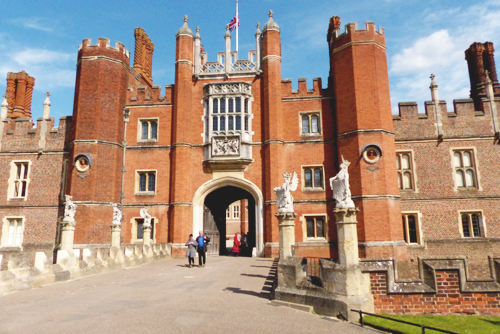
The cardinal and statesman most dominant in the political and religious affairs of England from 1515 to 1529, during the reign of King Henry VIII, and whose un-popularity and downfall facilitated the Reformation in England.

Born the son of a butcher, Wolsey studied at the University of Oxford, and was ordained a priest in 1498. He served as a chaplain to the deputy lieutenant of Calais before he caught the attention of Henry VII and served as the king's chaplain for a short while before the king's death. His abilities won him the favour of Henry VIII into whose service he quickly became a central figure as the young leisure-loving king left more and more of the running of state affairs into his hands. Recommended by Henry VIII, Pope Leo X made Wolsey bishop of Lincoln in February 1514, archbishop of York in September the same year, and cardinal in 1515. In December 1515 Henry VIII appointed Wolsey his lord chancellor. As he became more powerful, Wolsey also became greedy—wealthy with land and properties second only to the king—manipulative and ambitious.

Hampton Court, the palace south-west of London confiscated by Henry VIII from Wolsey.
Henry VIII was a vain man hoping to do great things for his own name; more than anything else he wanted to be seen as the arbiter of European powers. Capitalizing on the sharp conflict between the French—England's traditional enemy—and the Hapsburg of the Holy Roman Empire Wolsey arranged a grand alliance with the French king, Francis I, to promote a Europe-wide peace plan between 1518 & 1520. When war broke out between Francis and Charles V of the Holy Roman Empire in 1521, however, Wolsey committed English troops against the French, and earned the wrath of the English people by raising a tax to finance the war. But he switched in favour of the French in 1528. When Francis and Charles struck a peace treaty between them the following year, however, Henry found himself in diplomatic cold-waters; something he did not enjoy lightly.
Wolsey was more successful in his reform of the English legislative structure and in his ambition to found Cardinal College (today's Christ Church) in the University of Oxford. His downfall came when he was tasked to solve the king's "great matter," i.e., Henry VIII's need for a male heir and his desire to annul his marriage to Catherine of Aragon in order to remarry again. When it became clear that he had failed, his enemies turned the king's always deadly displeasure against him. The first charges against Wolsey, of praemunire—i.e., the crime of putting the interest of Rome above England's—was read out on 9 October 1529. He was stripped of most of his offices except the archbishopric in York. His office of lord chancellor was given over to Thomas More Too arrogant even in times like these to see his own foolishness, he traveled to York and made arrangement for his enthronement as archbishop, writing to the king for his mitre and pall for the purpose. Henry was reported to have said, when he heard of this, "Is there still arrogance in this fellow, who is so obviously ruined?" On 4 November 1530, three days before the planned enthronement, Henry ordered him arrested to be brought before the king on charges of engaging in secret correspondence with the pope and with the sovereigns of France and Spain. Wolsey never made the meeting with the king; dysentery took him when he reached Leicester Abbey just over three weeks into the journey.

©ALBERITH
110216lch